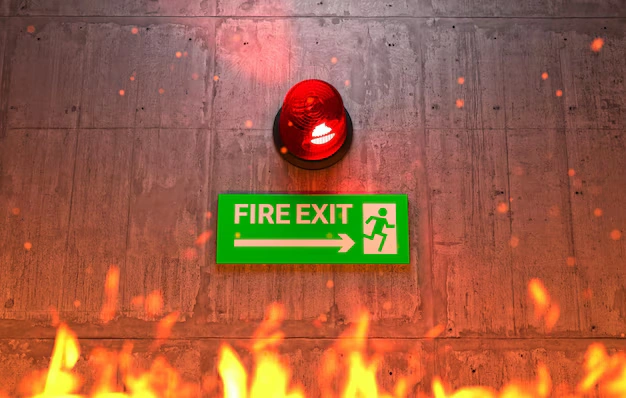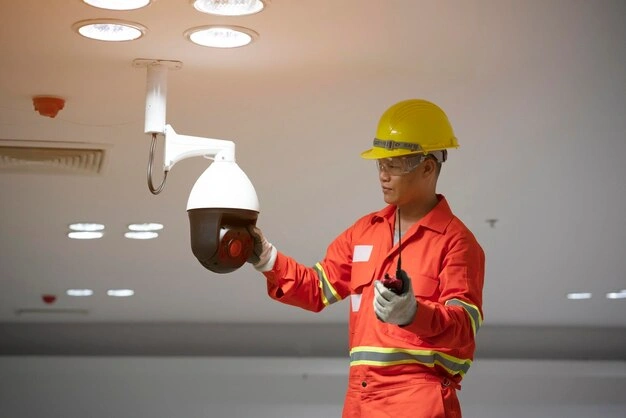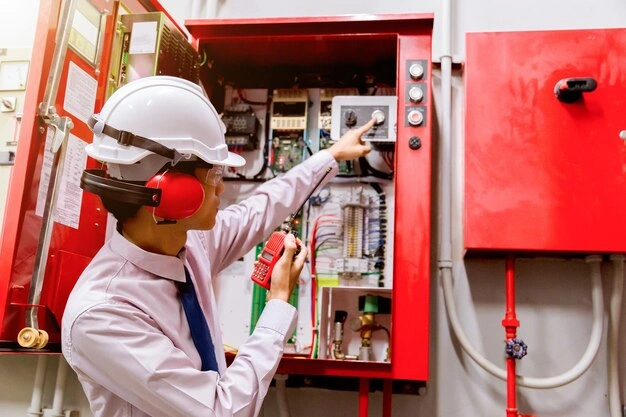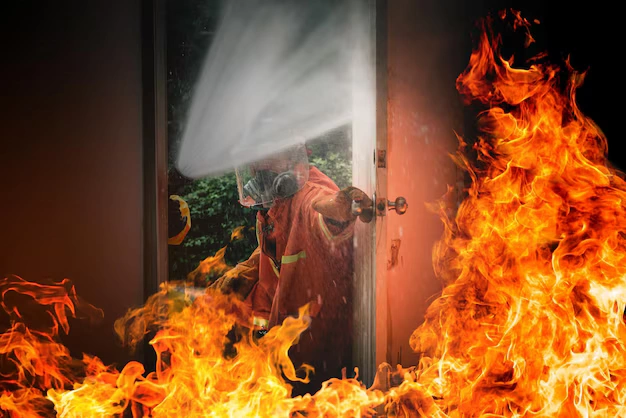Introduction
Electrical fires in the workplace cause deaths. Faulty wiring and overusing electrical outlets, as well as faulty equipment, are just some of the ways these blazes can catch on, but once they do, they can spread quickly. In this article, we are going to look at the most common causes of electrical fires at work and some helpful tips to help prevent them.

Understanding the Causes of Electrical Fires
· Overloaded Circuits and Outlets
Electrical systems can overheat and start fires when there is too much demand on an electrical circuit. Daisy chaining excessive devices together to a single outlet or placing extension cords copiously upon the floor as permanent wiring for prolonged periods can take a toll on the wiring.
· Faulty Wiring and Old Electrical Systems
Obsolete or deteriorating wiring is a fire risk. Eventually, wires can wear out, fray, or short. This is common in older buildings with outdated electrical systems.
· Malfunctioning Electrical Equipment
Buildings have also been set ablaze by faulty electrical equipment, including faulty computers, printers, or machinery, that can spark an electrical fire if it overheats or has malfunctioning parts. Equipment failure is responsible for more than half of all workplace fires, so routine maintenance and inspection of devices can help prevent disaster.
· Poor Maintenance and Neglected Repairs
Electrical issues like exposed wires, loose connections, and worn power strips should be fixed immediately; otherwise, they can lead to short circuits and fires. You have regular checkups, and you perform maintenance on the electrical.
Key Steps to Prevent Electrical Fires
1. Avoid overloading outlets and circuits.
- Spread Out the Load: Do not plug multiple power-hungry devices (such as printers and space heaters) into the same electrical outlet. This then provides all the correct base load to where the tenant/occupants will be from the main fuse board (exactly which load they want).
- Use Power Strips with Surge Protection: Power strips with inbuilt surge protection help to prevent damage to equipment, which may cause an overheating issue.
- Unplug Devices When You’re Not Using Them: Appliances that are left plugged into the wall, even though you’re not using them, can overheat, creating a fire hazard.
2. Inspect and Upgrade Wiring Systems
- Regular Electrical Inspections: Have regular inspections done of the workplace’s electrical system to check for wear, outdated wiring, or other hazards.
- Install New Wiring: Old buildings may not reflect modern wiring standards and need to be upgraded to be up to code and minimize fire risk.
- Repair Worn Wiring: Any damaged or frayed wiring must be repaired instantly to prevent electrical shorts.
3. Regular Equipment Maintenance
- Check Electrical Appliances: Regular inspection & maintenance of all electrical appliances like computers, printers, and other office equipment should be performed to ensure all are in good functioning.
- Clean Equipment: Dust and debris can build up in any electrical appliance and contribute to overheating. Have equipment cleaned on a routine schedule to reduce fire hazards.

4. Use Certified and Safe Equipment
Get UL-Certified Products: Purchase safe electrical equipment such as UL-listed (Underwriters Laboratories) products. These products have undergone testing for fire hazards and meet safety standards.
Do Not Buy Cheap Knockoffs: Low-quality or unregulated electrical products are usually missing essential safety features and can cause malfunctions or fires.
5. Proper Use of Delay Cords
- Keep Allowance Cord Usage to a Minimum: Extension cords are a impermanent device. Do not use them to extra permanent wiring. Extra outlets or dedicated circuits are also an option.
- Use Proper Extension Cords: Use extension cords that are rated for the devices you are working into them and avoid overloading them.
- Always Store Extension Cords Safely: Never coil allowance cords when you use them, and when you aren’t, store them in a safe, dry area away from where they may be hurt.
Fire Safety and Emergency Procedures
Have Accessible Fire Extinguishers: Fire extinguishers must be easily accessible and anywhere they are needed in the office, including around electrical equipment.
Train Employees: Ensure all staff are familiar with fire extinguishers and what to do if an electrical fire occurs. Safety procedures should be regularly rehearsed through fire drills.
Create an Emergency Evacuation Plan.
- Create a fire evacuation plan: In case of an electrical fire, having a clear and well-structured evacuation plan is of utmost importance. Make sure employees are aware of what the closest exits are and where to meet.
- Generalize Sound Drills: Regular fire drills will allow employees to practice what to do in the event of an electrical fire, as well as make sure that everyone knows how to get out in case of an emergency.

Electrical Safety Training for Employees
Safety Protocols and Best Practices
- Periodic Training: Keep conducting periodic training for employees about electrical safety, especially using the right equipment and electrical devices.
- Immediately Report Issues: You should have all employees report any issues with the electrical systems, where there are exposed wires, equipment not working as it should, etc.
- Establish Clear Guidelines: Ensure that employees understand what actions to take in the event of an electrical fire, when to grab a fire extinguisher, and when to leave the premises.
Conclusion
Though electrical fires are a dangerous hazard in any workplace, they can be prevented with proper safety practices. Regular inspections, proper maintenance, safe practices, safe usage, and trained employees are some of the ways to reduce the risk of electrical fires considerably.
FAQs
1. How frequent should be the electrical inspections of my office?
Engineers recommend you have an electrical inspection once a year. More frequent inspections are advisable for older buildings and when any electrical issues exist.
2. Can I do ‘permanent’ extension cords in my office?
No, extension cords are temporary solutions. If you need more outlets, it’s safer to hire a professional to install additional outlets or circuits.
3. Are there specialized fire extinguishers for electrical fires?
Yes, Class C fire extinguishers are specifically made to handle electrical fires. They should be accessible, especially in highly utilized electrical equipment environments.
4. I think the answer depends on several factors, but suspect wiring is a big one.
If you suspect faulty wiring, switch off power to the affected area and contact a licensed electrician to check and rework the wiring.


